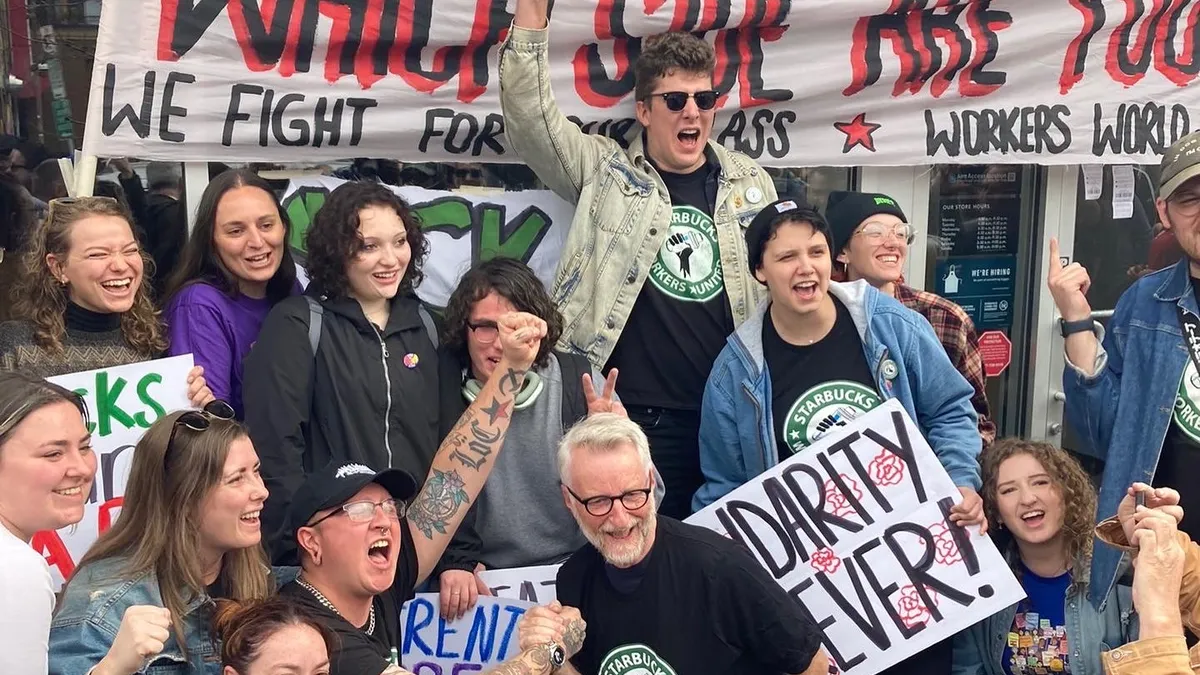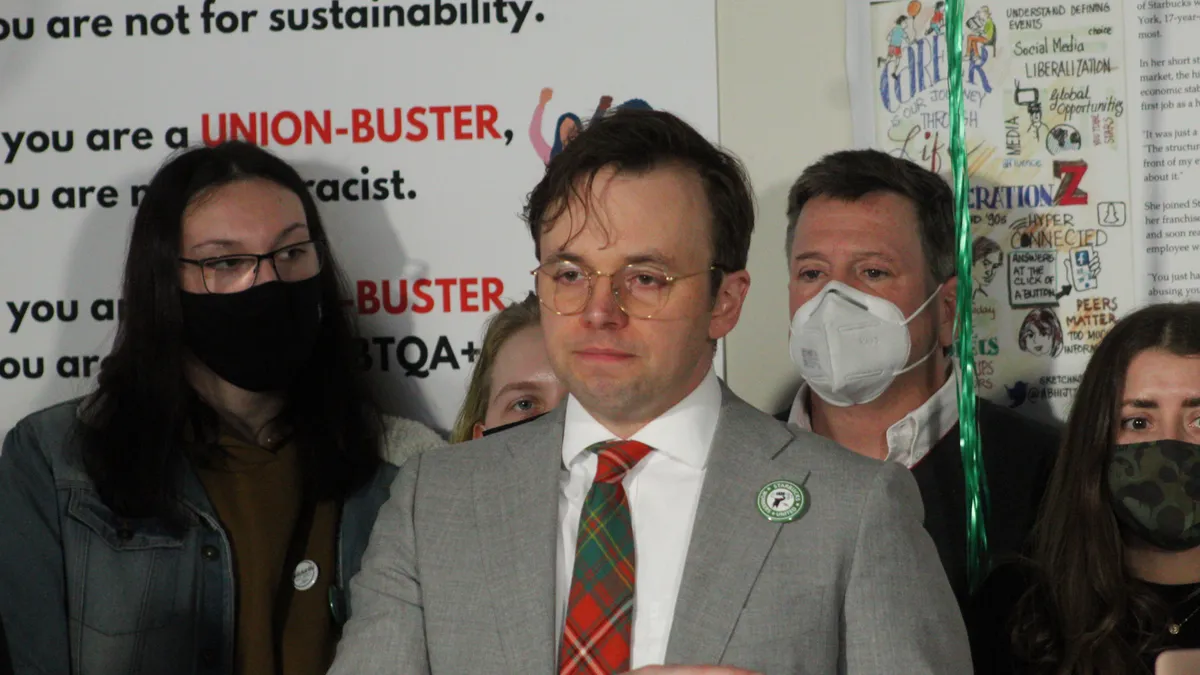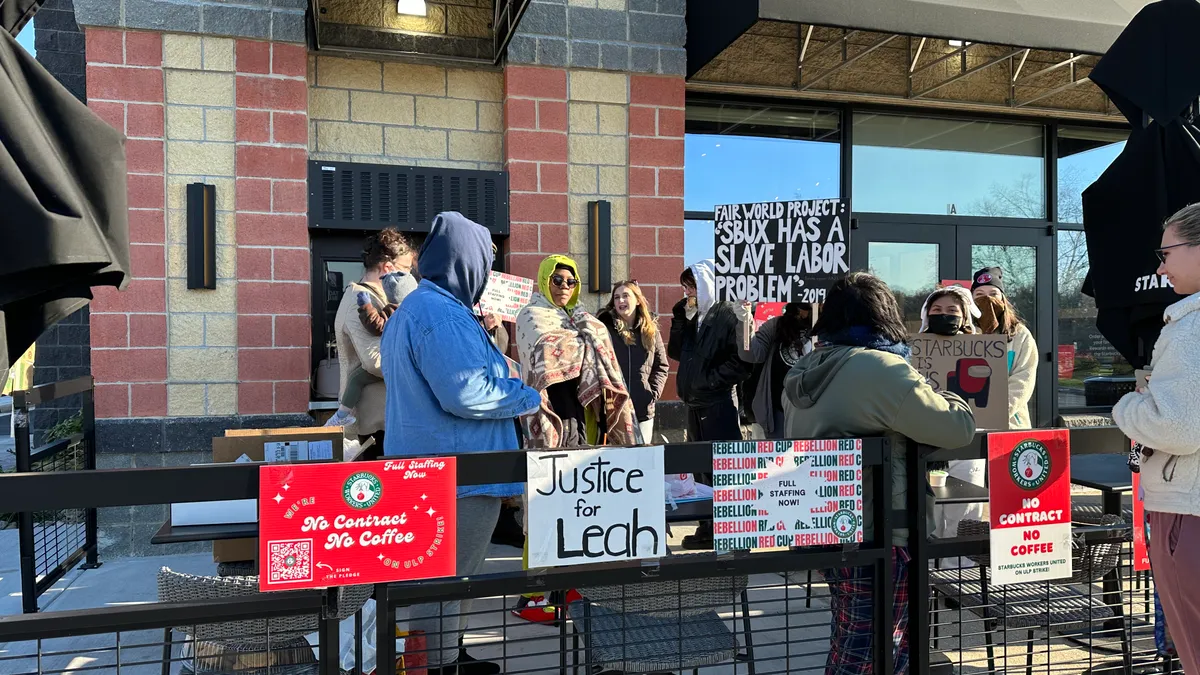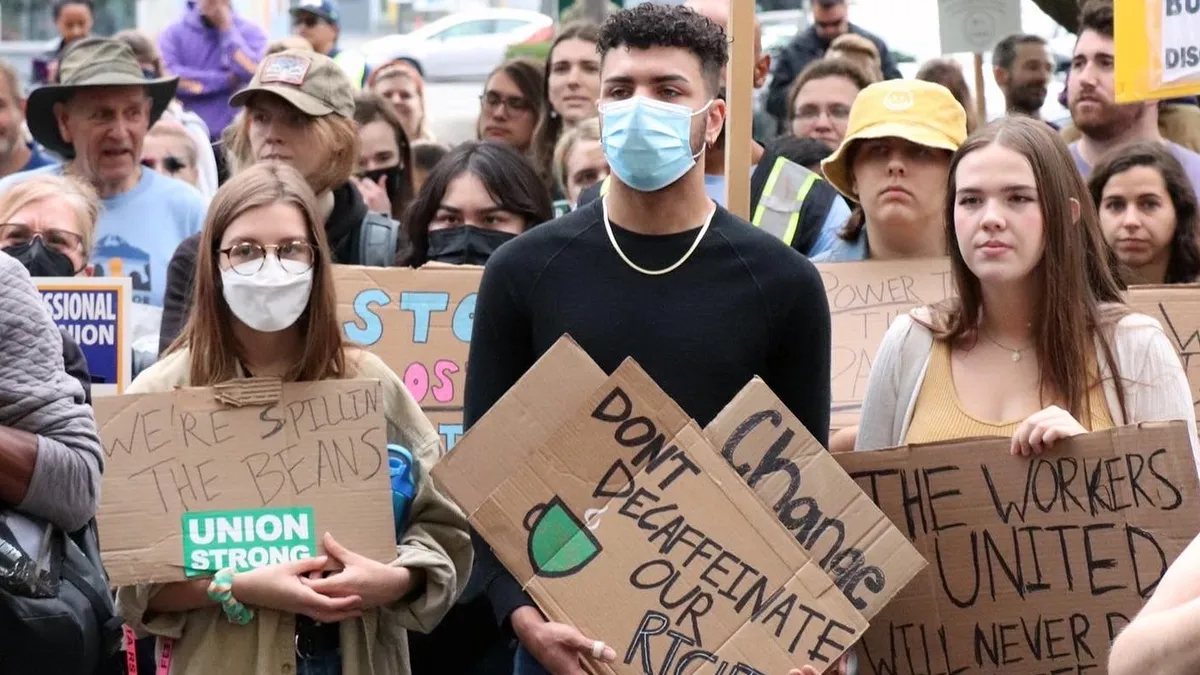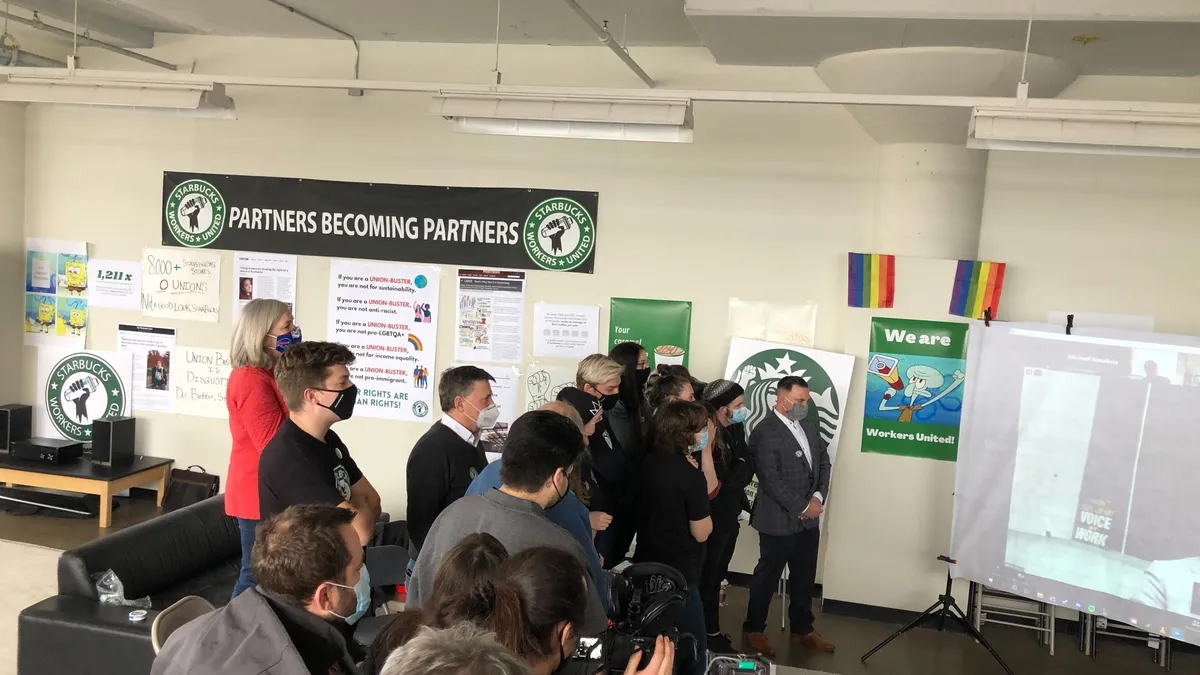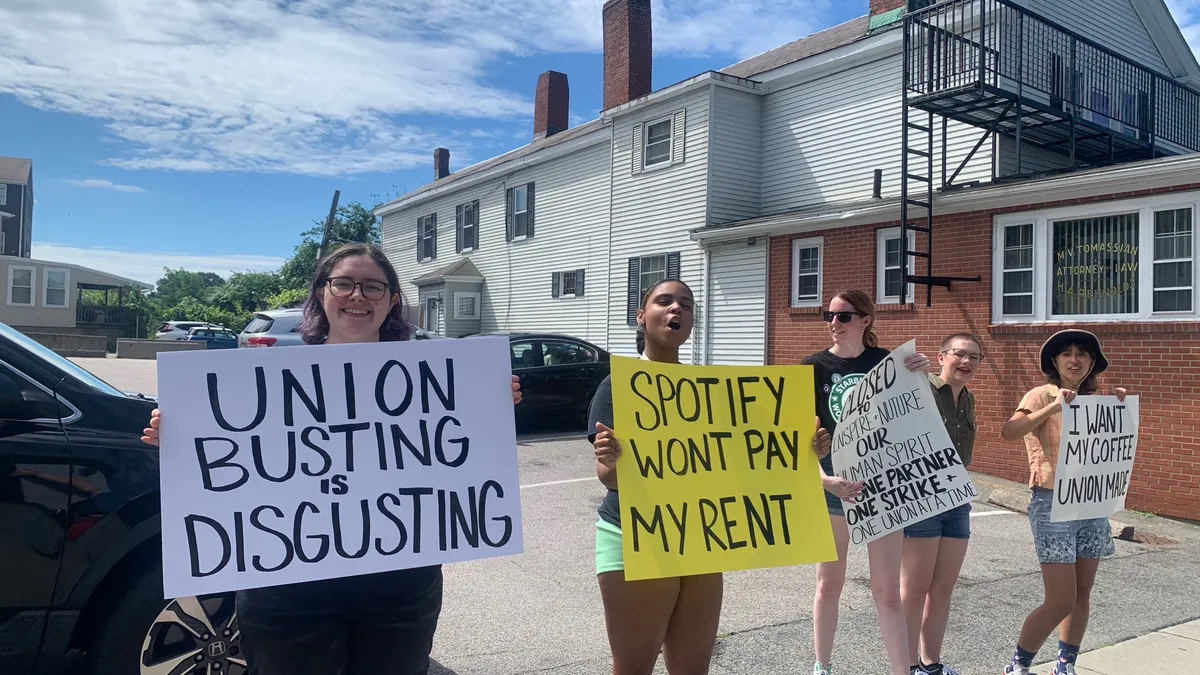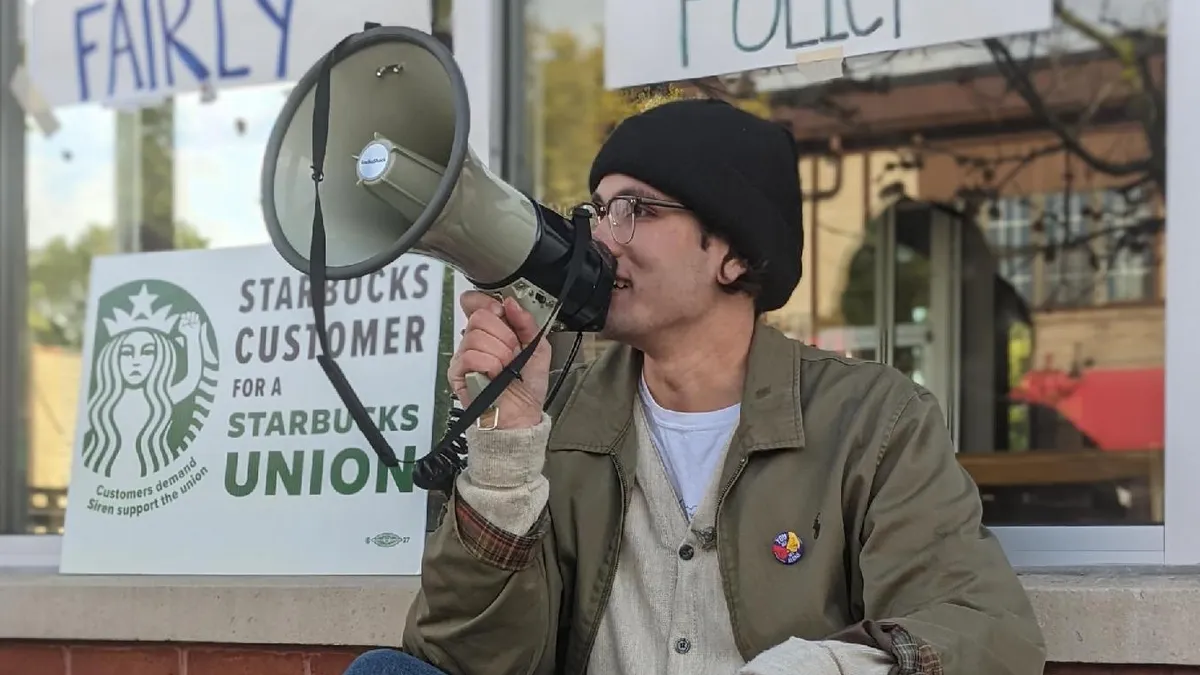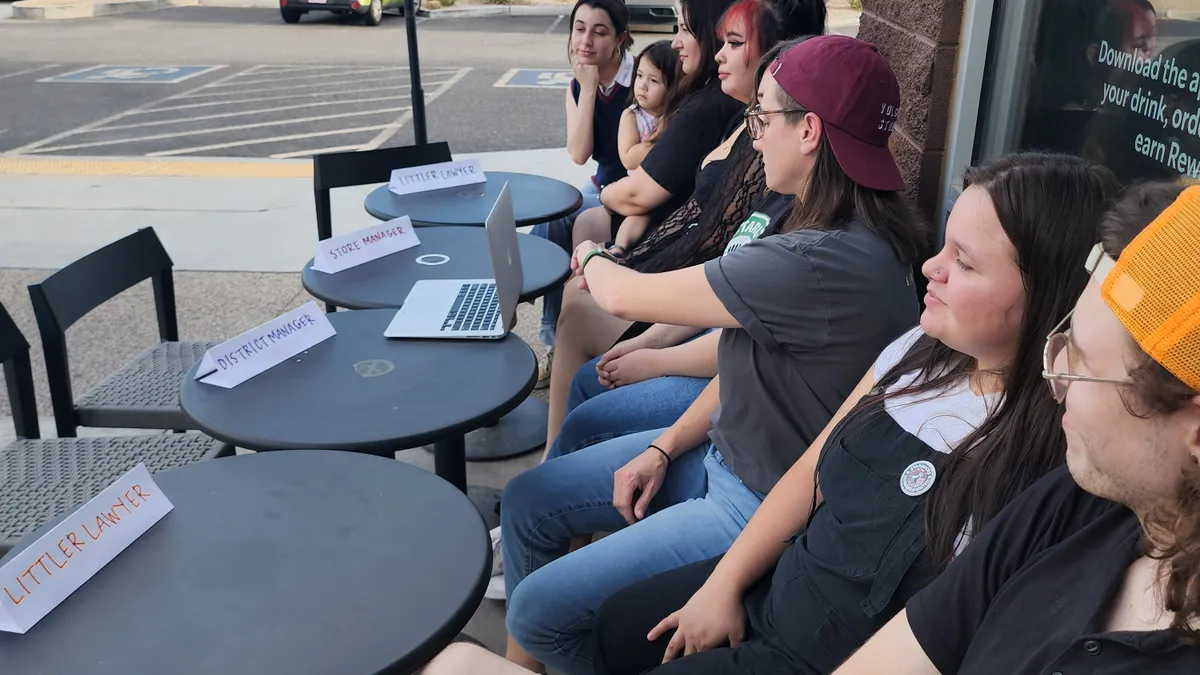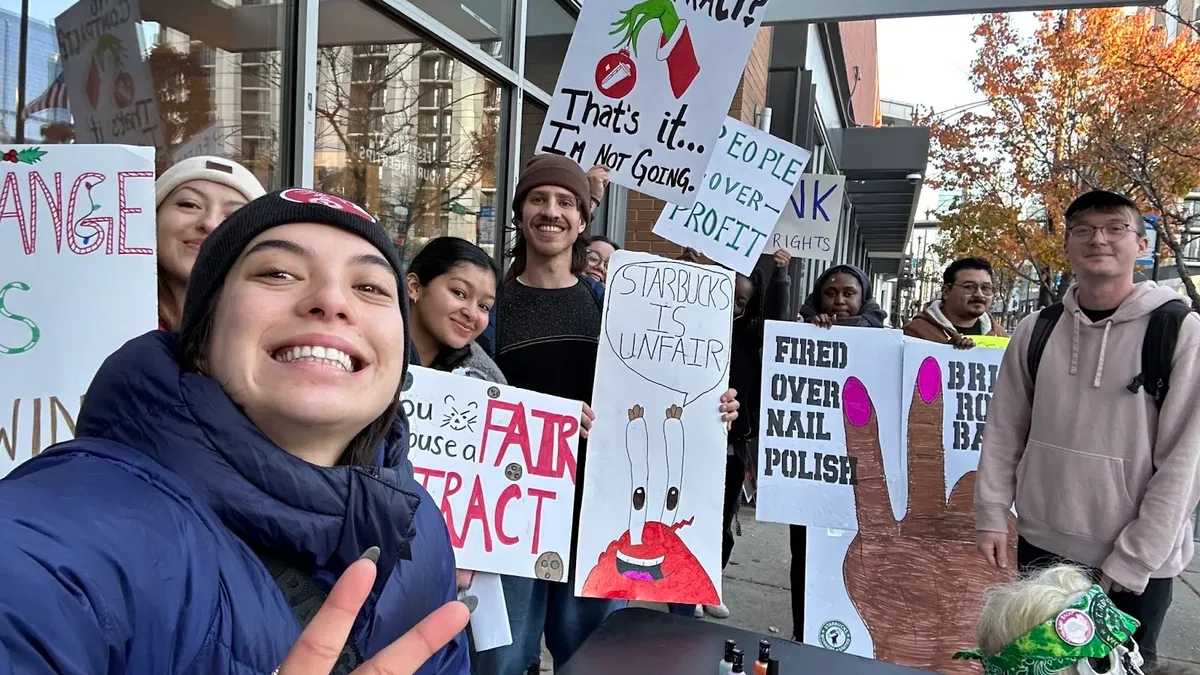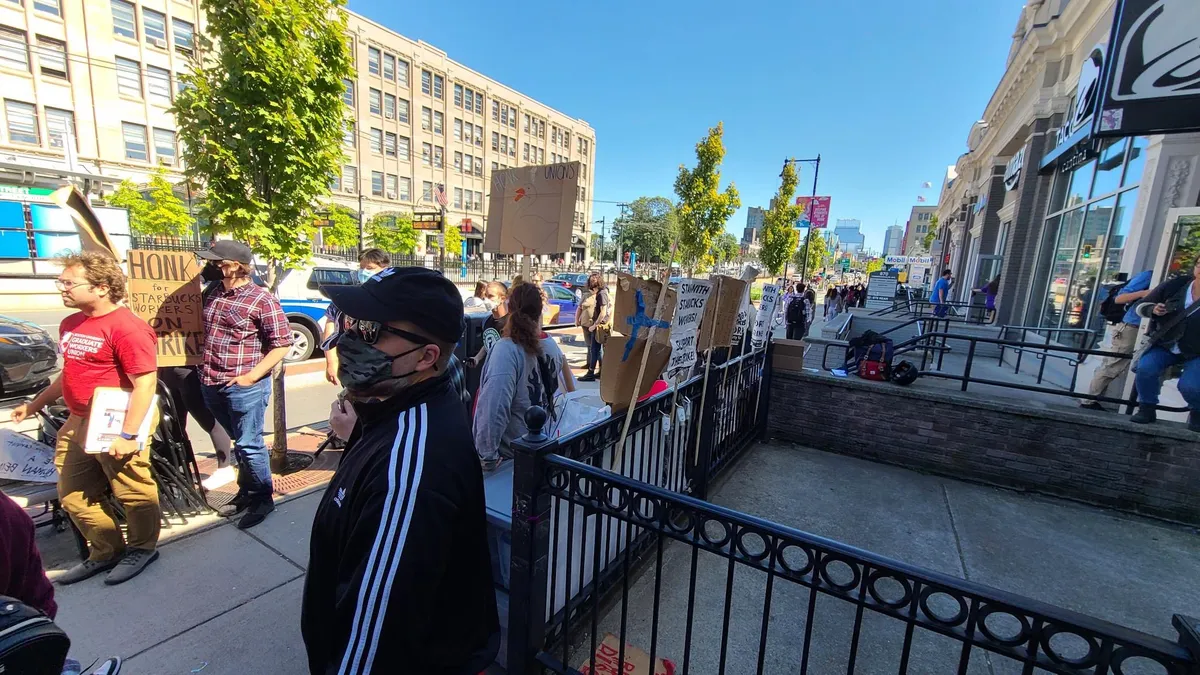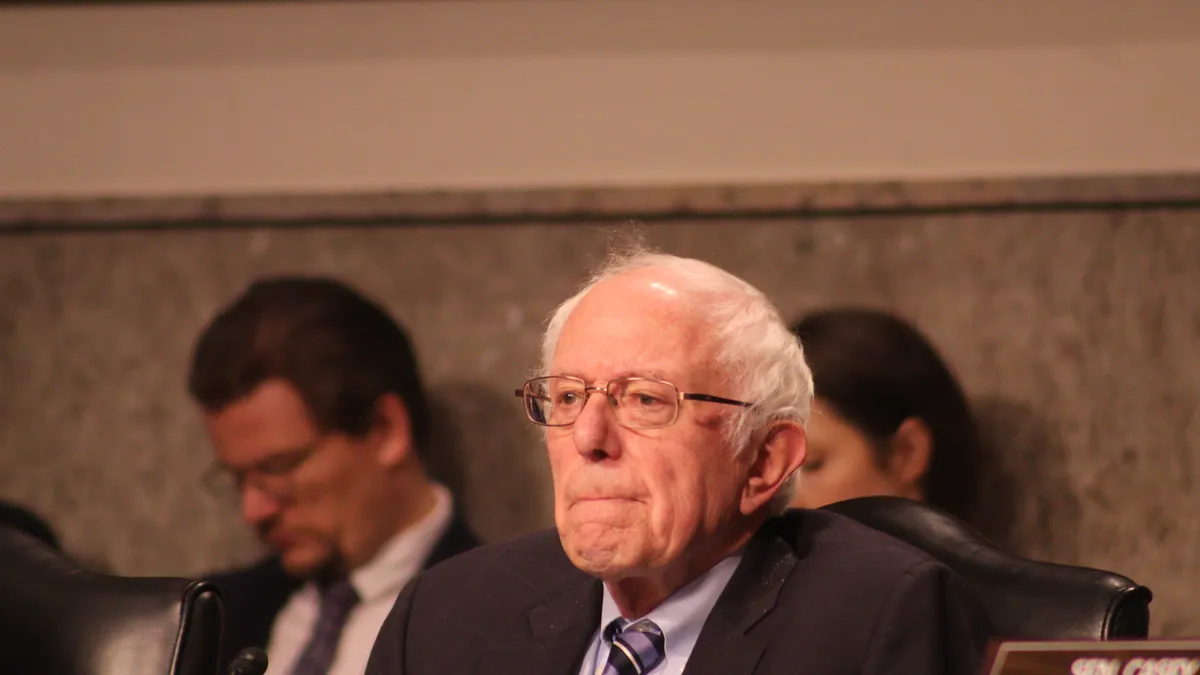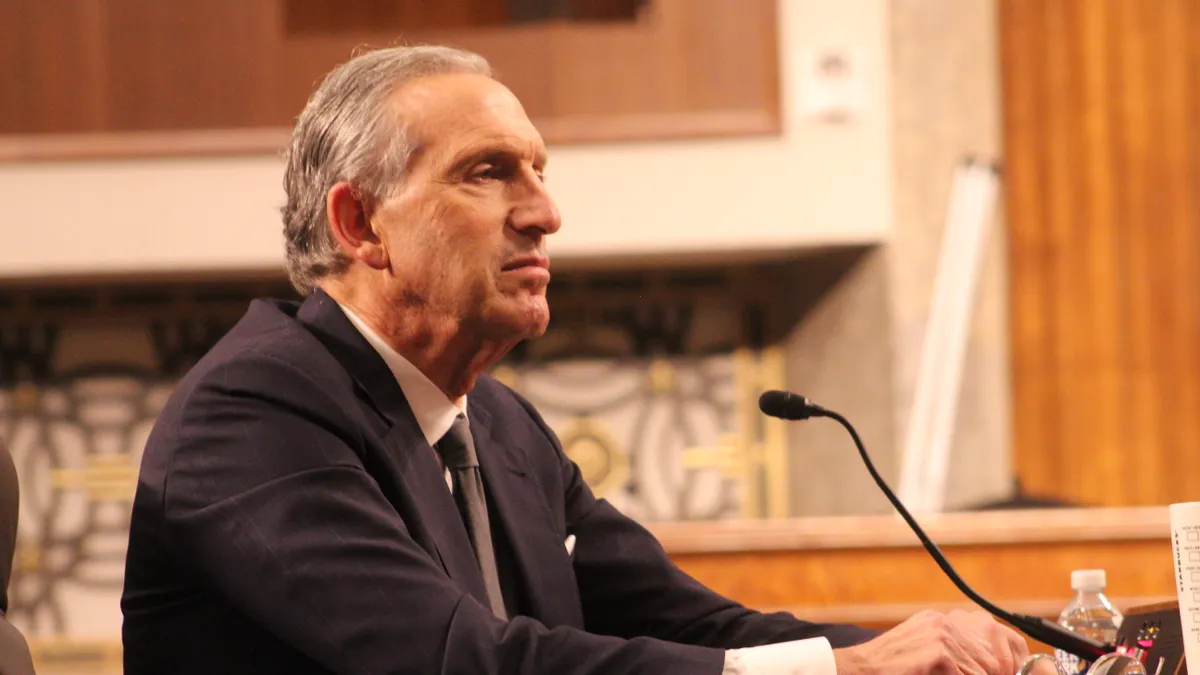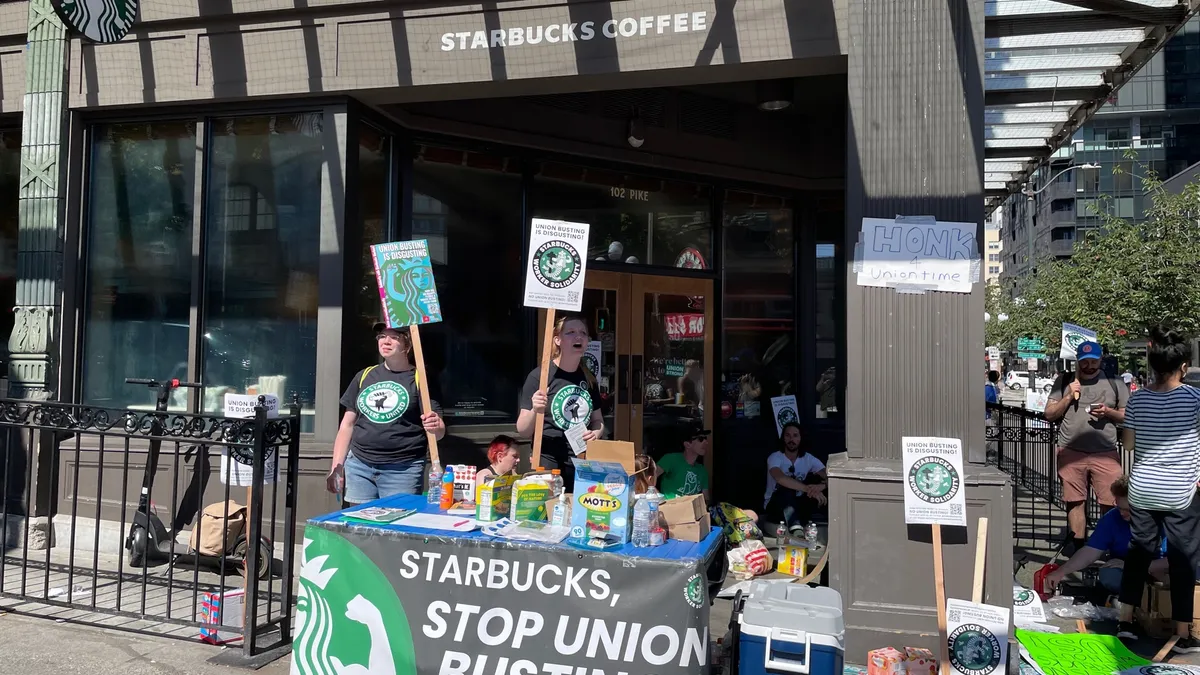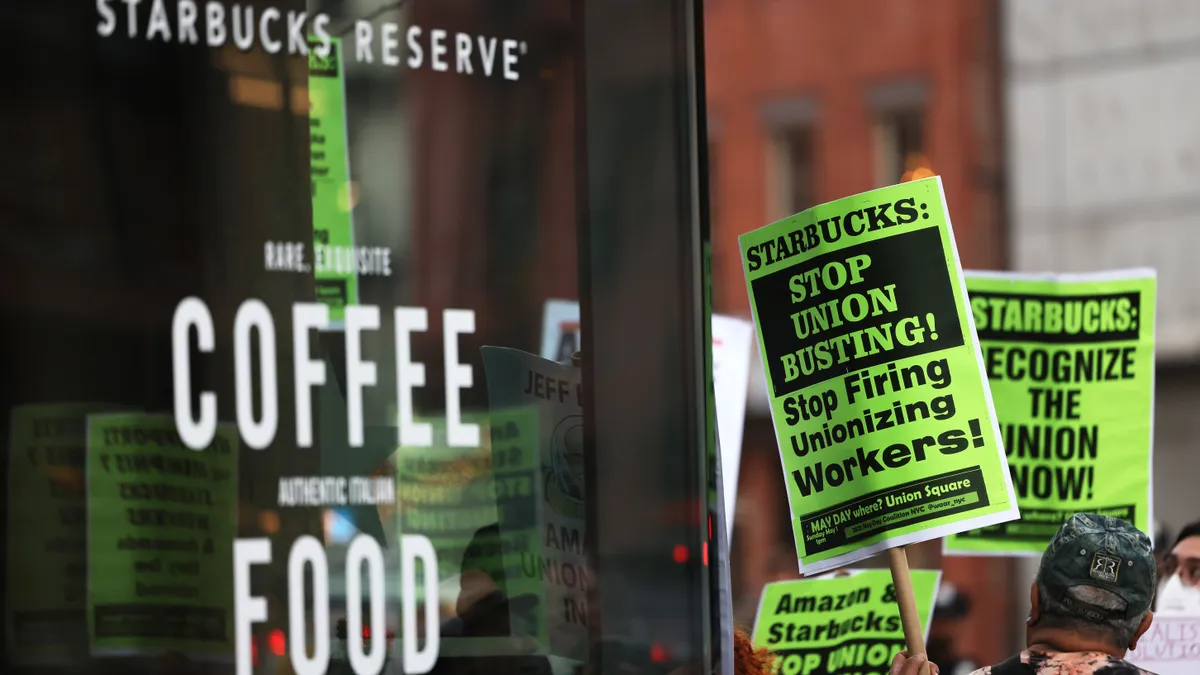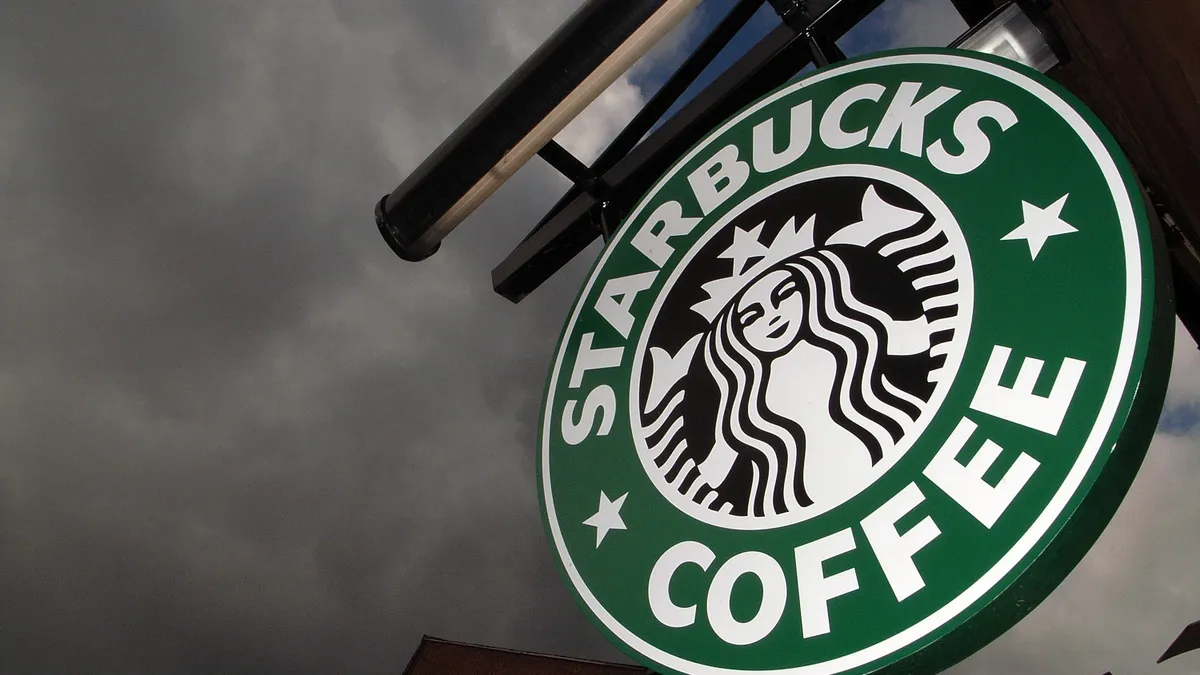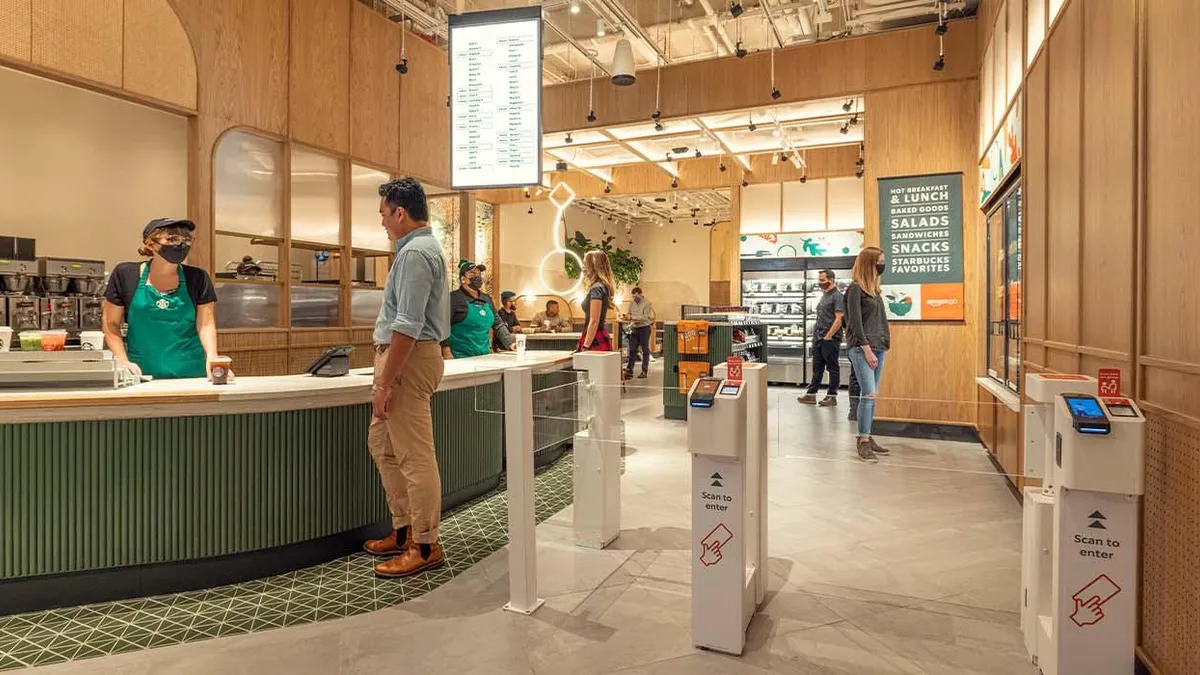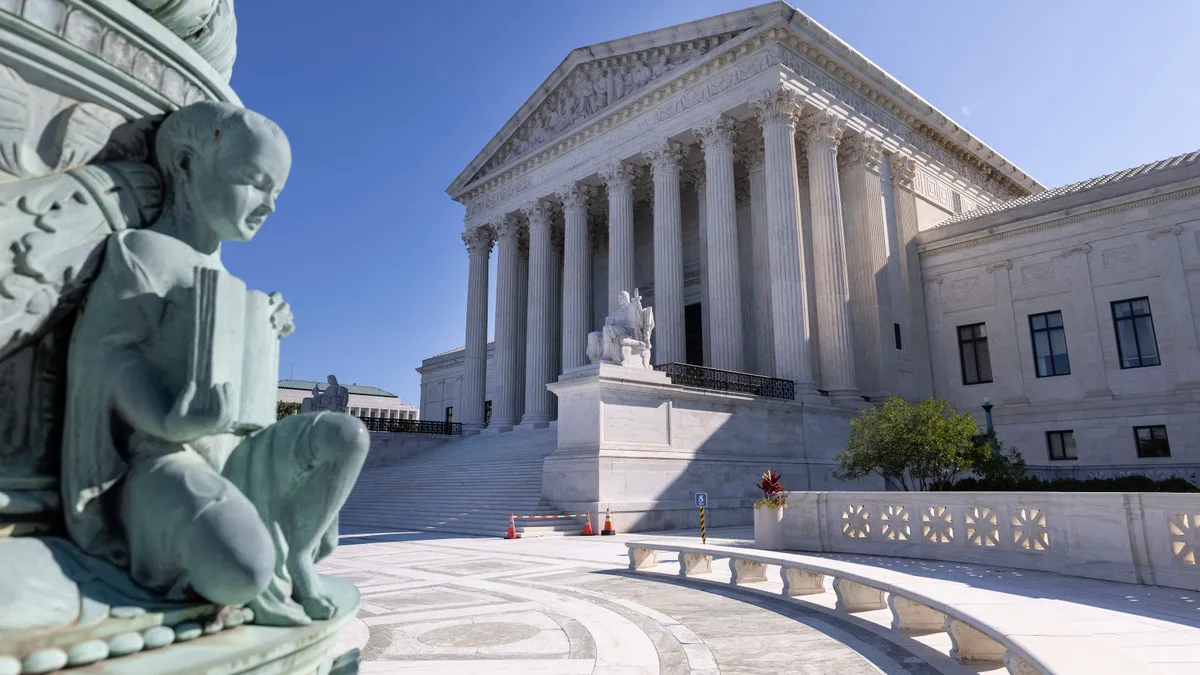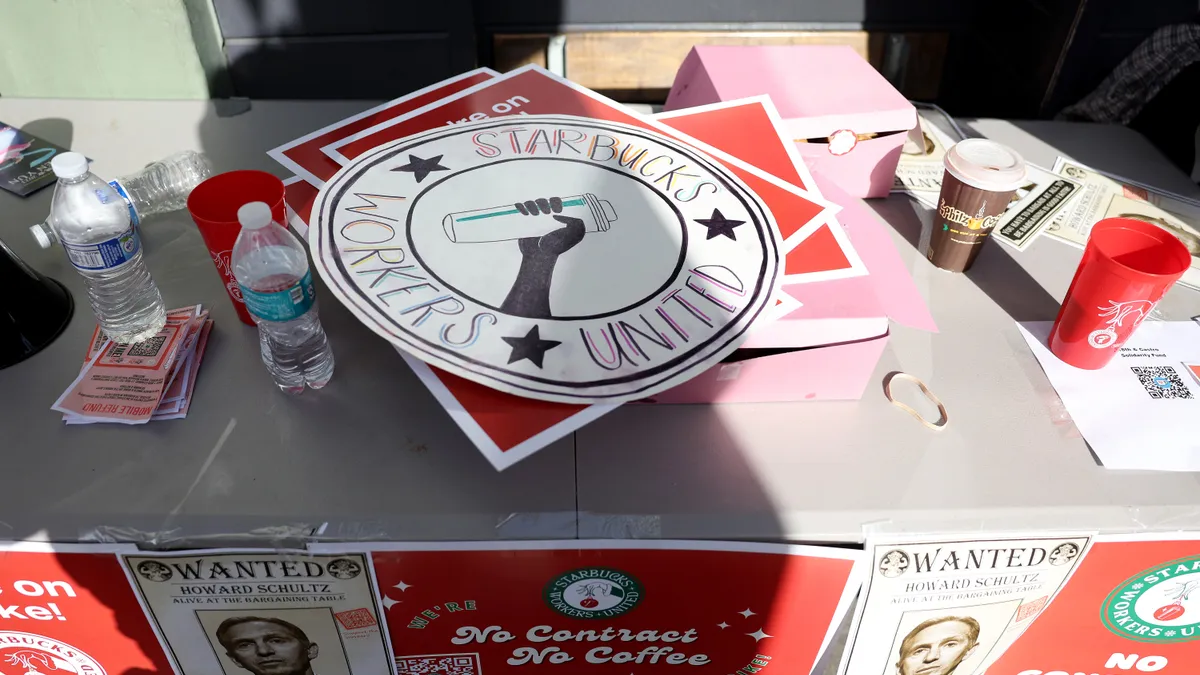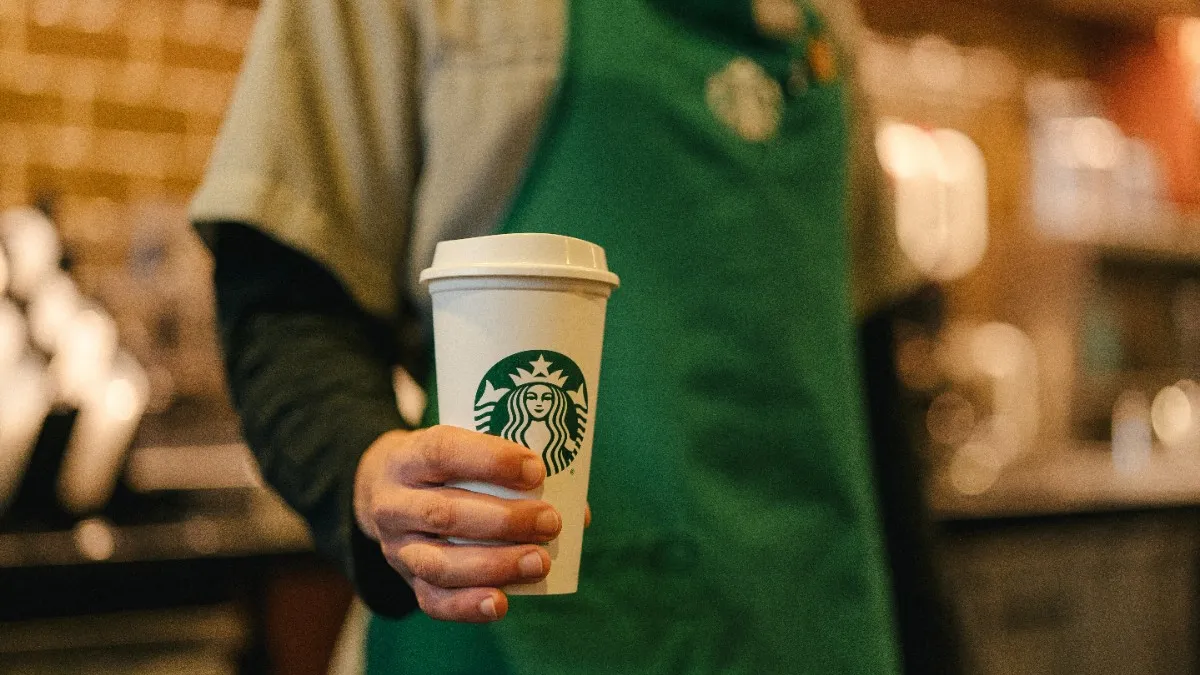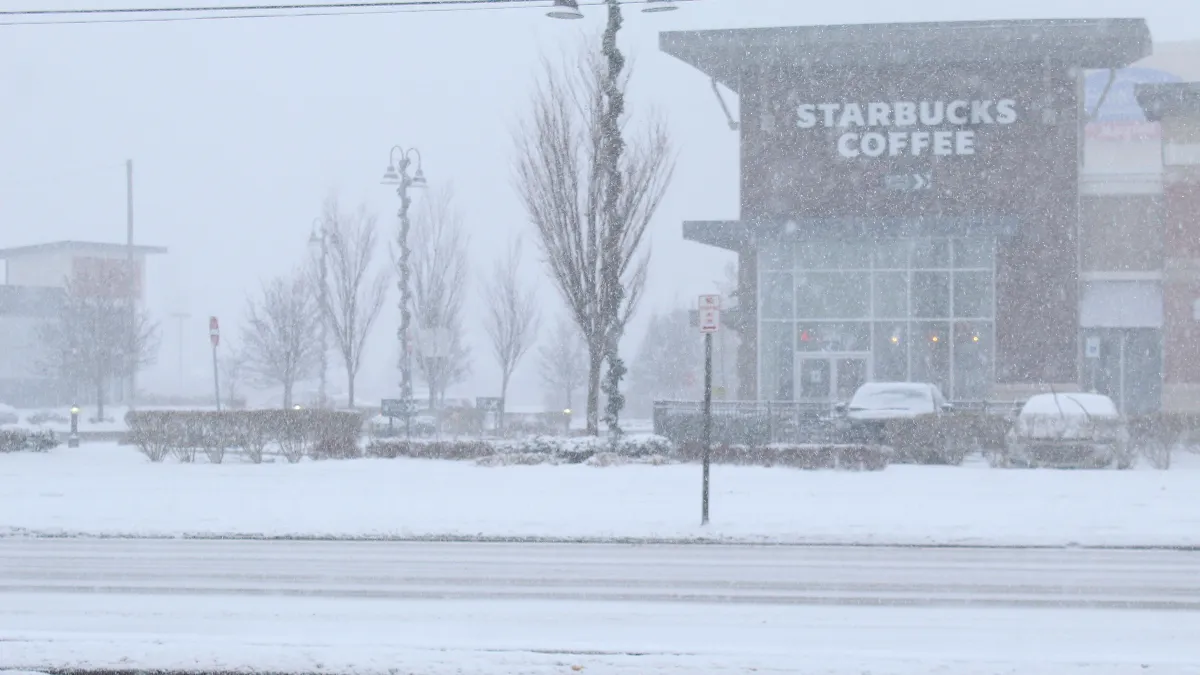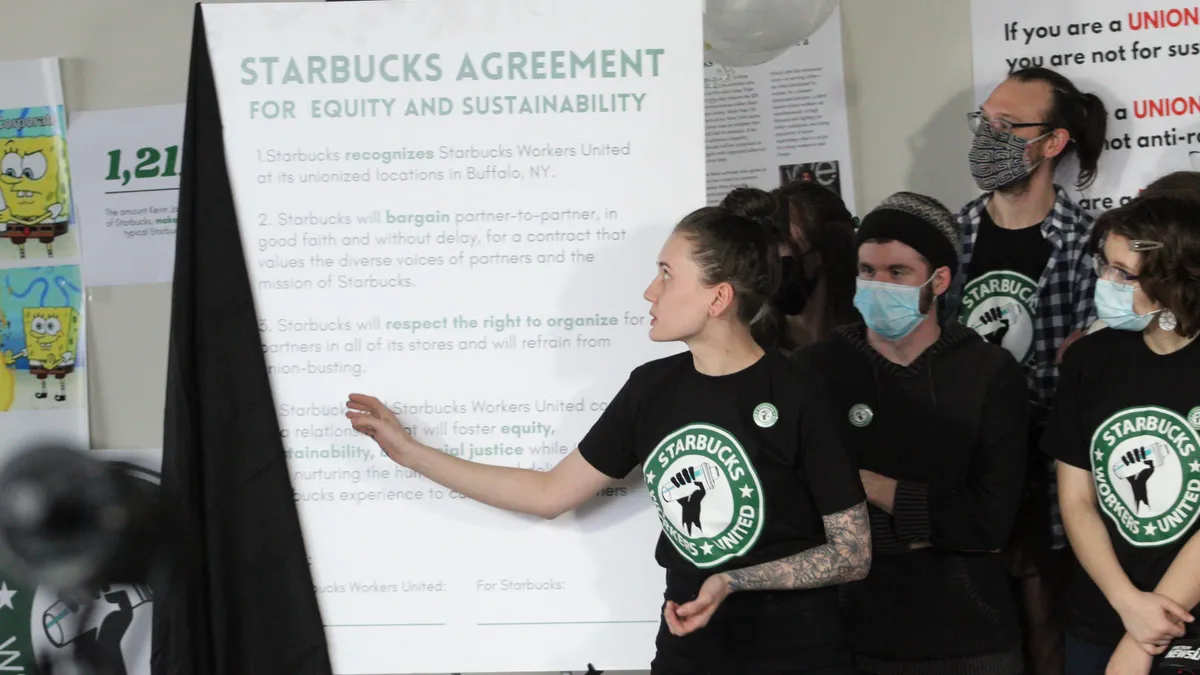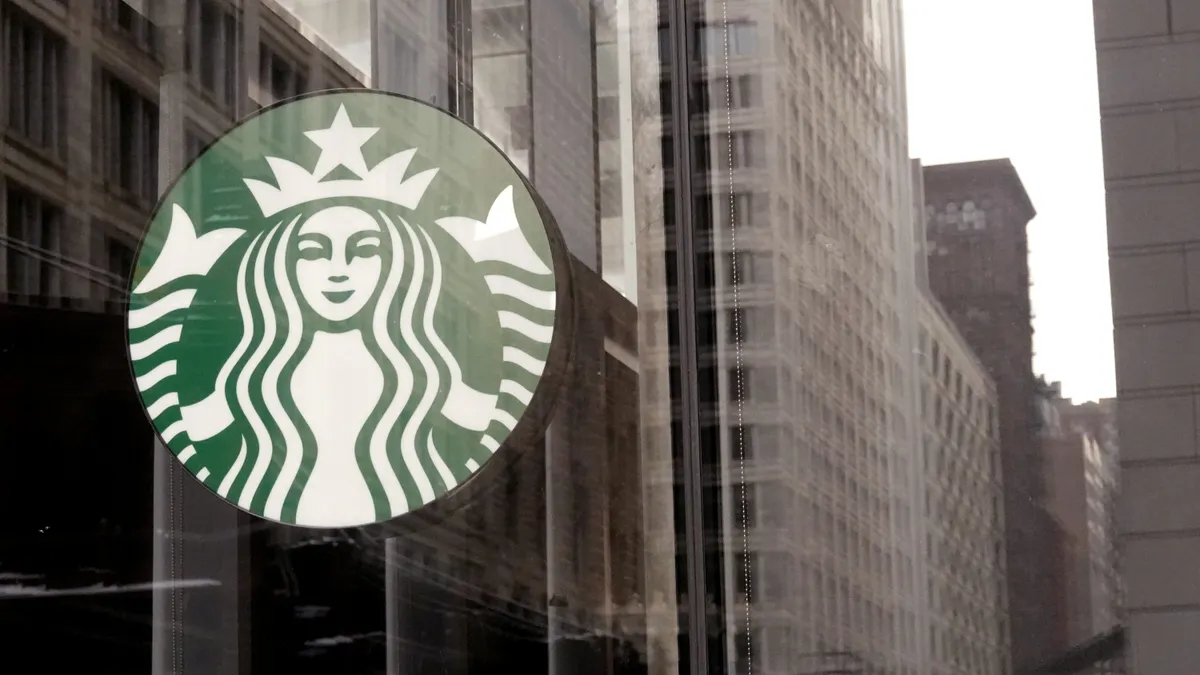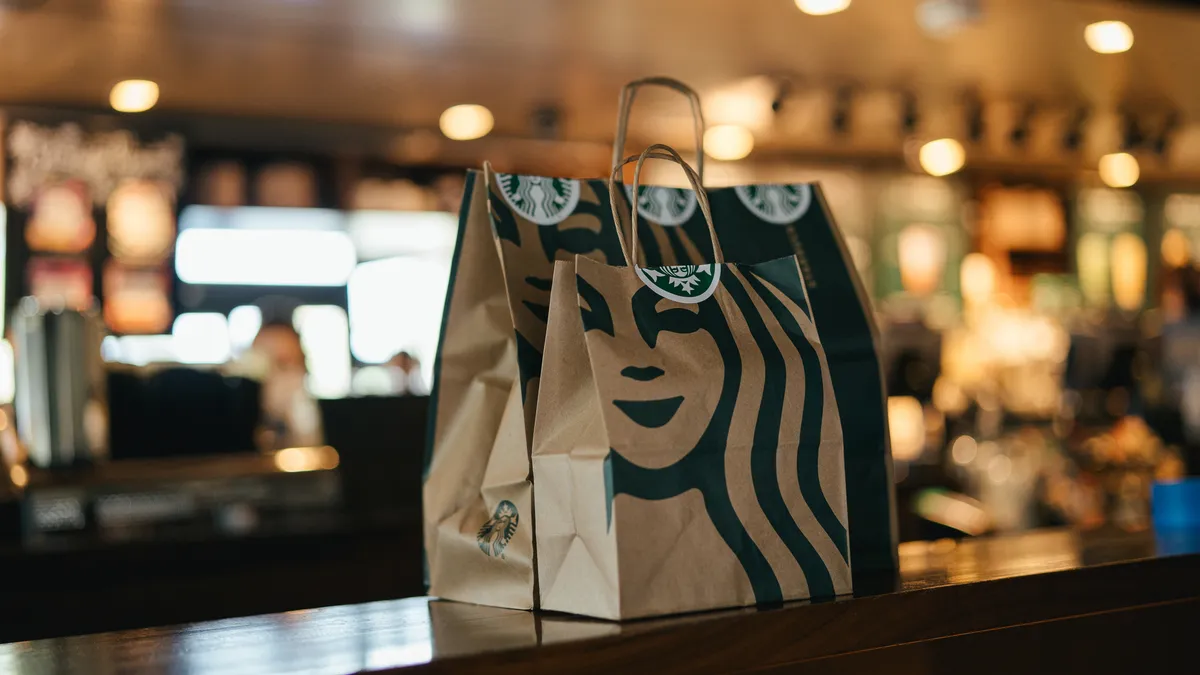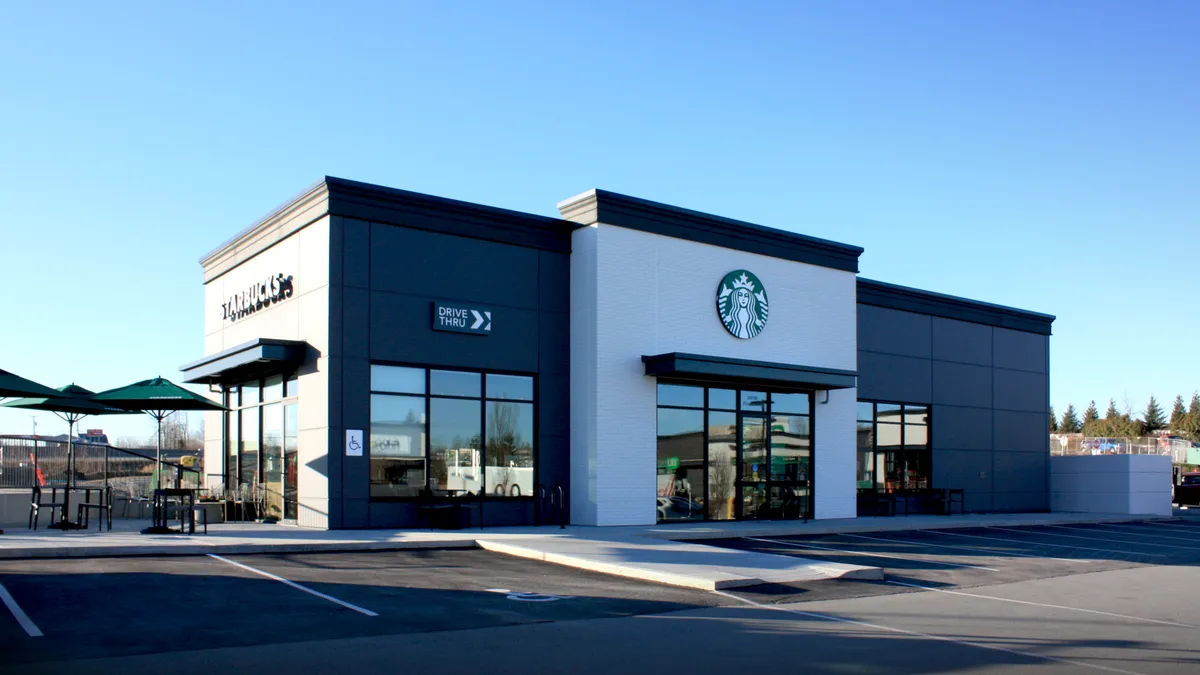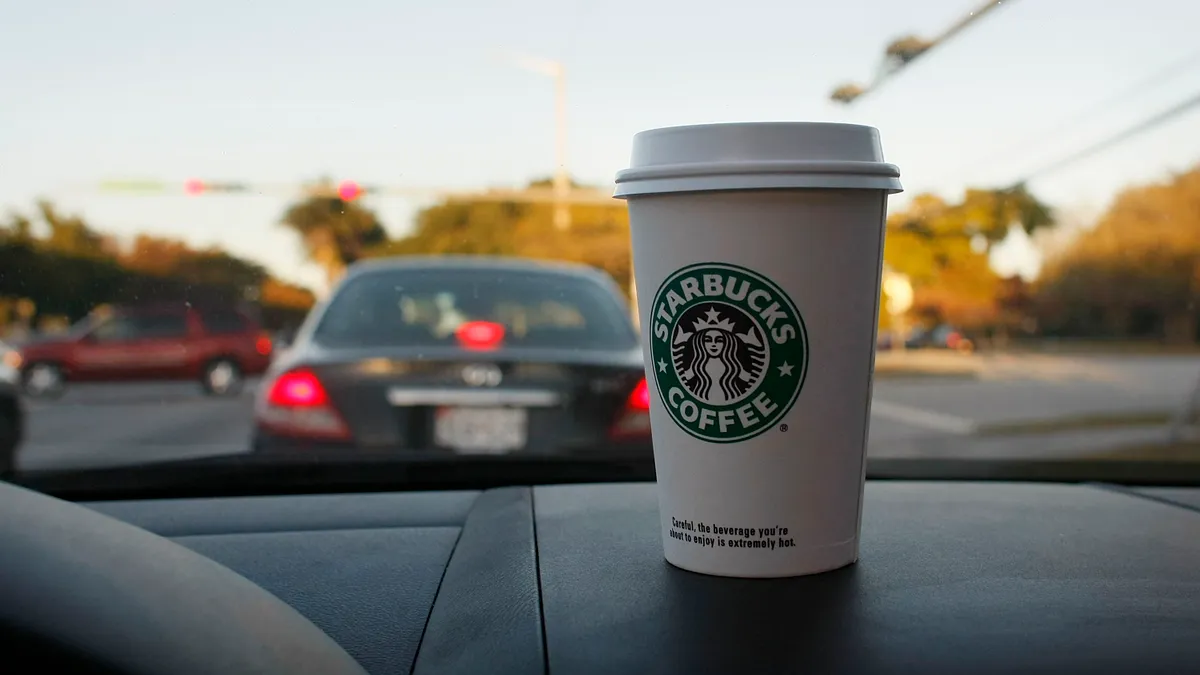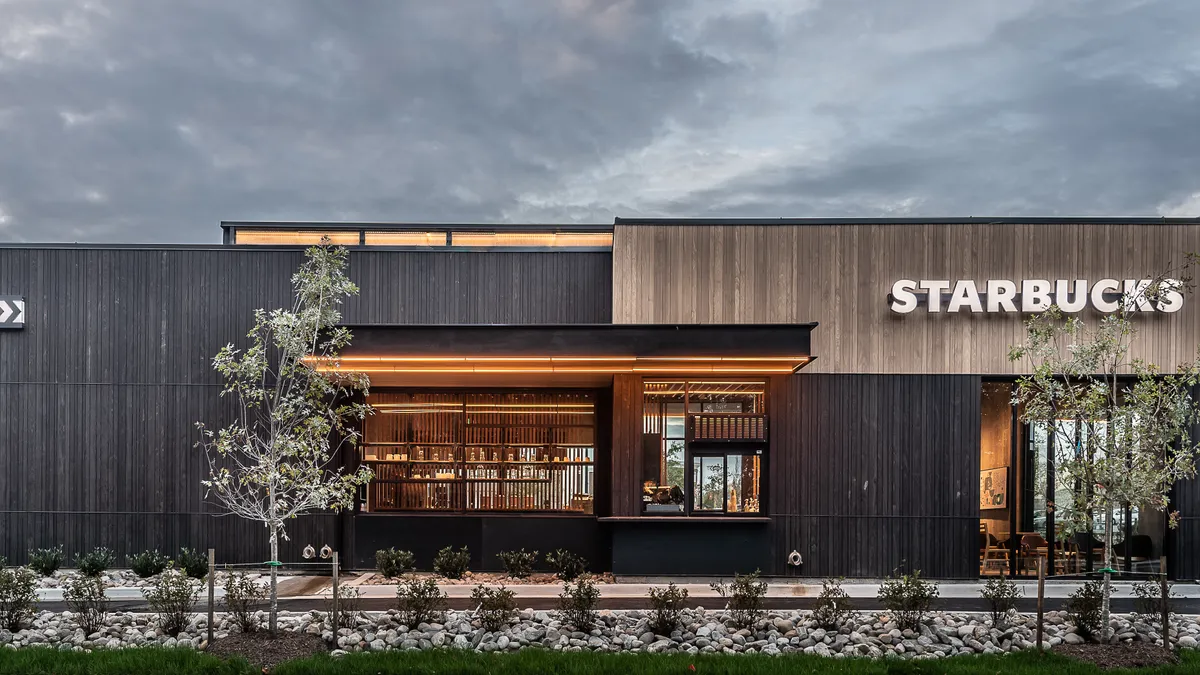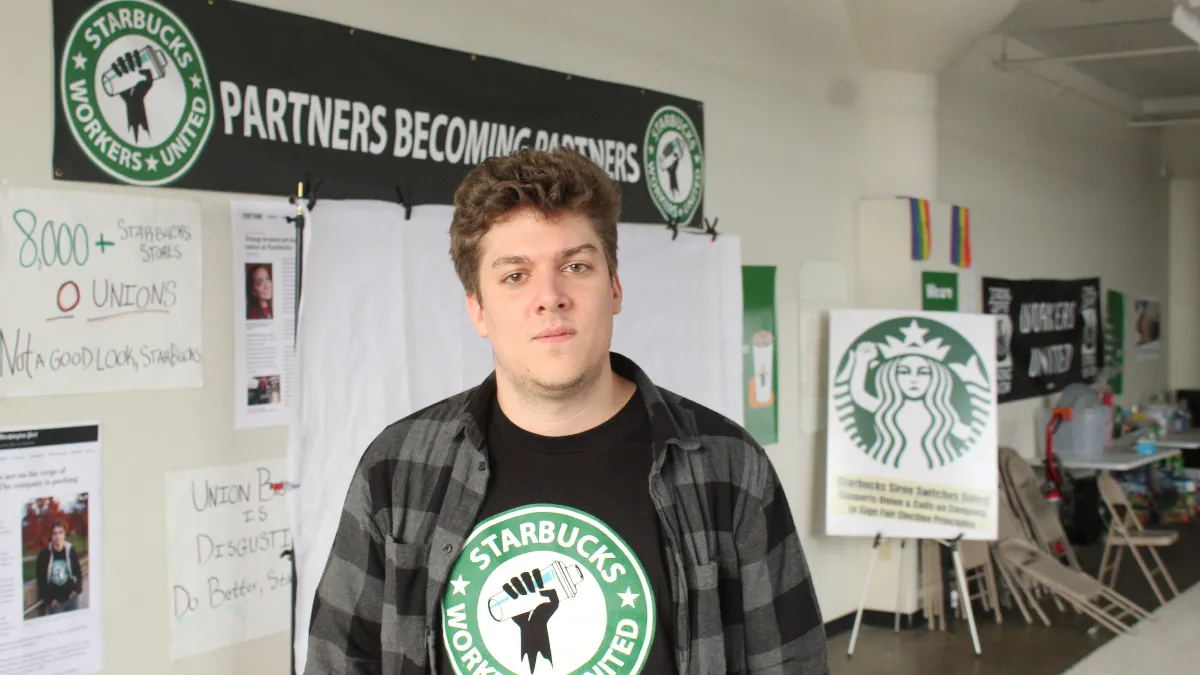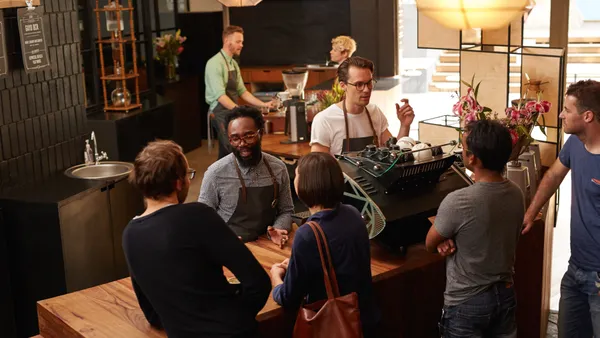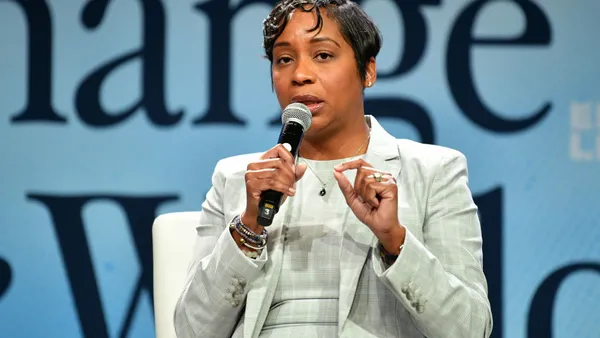Starbucks’ insistence that it has not violated labor law was dealt another blow last week. Michael Rosas, an NLRB administrative law judge, issued a decision that found the coffee chain had repeatedly violated sections of the National Labor Relations Act in its response to the Starbucks Workers United campaign.
Rosas ordered broad remedies for the company’s action, including the reinstatement of six pro-union workers who were fired in the Buffalo, New York area.
To date, the coffee chain has been ordered, through a combination of ALJ rulings and court injunctions, to reinstate at least 20 employees allegedly terminated for union organizing, said Casey Moore, a Starbucks barista and a communications representative for Starbucks Workers United.
The company’s treatment of its workers has prompted major shareholders, including New York City pension funds, to back a proposal recommending a complete, independent review of Starbucks labor relations.
Starbucks intends to appeal the judge’s decision to the full NLRB in Washington, D.C., the company wrote in an email to Restaurant Dive.
“We believe the decision and the remedies ordered are inappropriate given the record in this matter and are considering all options to obtain further legal review,” a Starbucks spokesperson said.
This appeal is unlikely to succeed at the board level, said Gay Semel, a retired labor lawyer and former field attorney for the NLRB.
Outside of extraordinary cases, there are rarely significant challenges to the factual findings of an ALJ, meaning the outcome of a board appeal rests on legal arguments. Semel said the facts of this case — including allegations of firings and surveillance of workers in retaliation for engaging in legally protected union activities — are fairly evident, and they are not on Starbucks’ side.
“These are not difficult cases,” Semel said. “My guess is the ALJ is going to be affirmed on most of it.”
Ian Hayes, one of the lawyers representing Starbucks Workers United in the case, echoed Semel’s opinion.
“The chances of Starbucks getting any part of it reversed are virtually nothing,” Hayes wrote in an email to Restaurant Dive.
But Starbucks isn’t appealing to stop specific remedies or overturn findings of fact, Semel said. The company is using one of its strongest weapons in the fight against SBWU: time. A complicated board appeal could take years and drawing out such a case could demoralize workers and let turnover eat away at the union’s base of support.
“After [Starbucks] loses at the board, which presumably they will,” Semel said. “Then they’re going to appeal to the court of appeals. And my guess is that they will also appeal to the supreme court. Money is no object here.”
Workers count the ruling as a win
In foodservice, betting on turnover is rational. Most recently, the category’s quits remain nearly twice the national average at 5.4% per month. This translates to 745,000 restaurant workers quitting their jobs in December, the latest month for which labor turnover data is available from the U.S. Bureau of Labor Statistics.
Despite the coffee chain’s advantage, pro-union employees count last week’s ALJ ruling as a major win, Moore said. Starbucks denies it violated the labor act and insists, as it has in a number of cases, that any union workers disciplined or fired violated company rules.
But for Moore, the ALJ decision confirms what pro-union workers have reported in shops across the country.
“It’s a huge morale booster for workers who have been organizing now for — in some cases -– over a year and a half,” Moore said. “We’ve been saying, for a year and a half now, Starbucks has launched one of the most aggressive union-busting campaigns in modern U.S. history.”
Semel said these milestones can help unions maintain members’ morale, which can somewhat counteract the impact of turnover and anti-union managerial tactics. “Every one of these small victories helps. And they help because they affirm to the workers that they were right.”
Moore echoed this sentiment. “Now, in this massive case in Buffalo, we can say we were right,” She said. “What [Starbucks] has been doing is illegal. Now, we have a judge's decision to back that up.”
The ALJ ruling offers more tangible advantages, too.
Rosas ordered Starbucks to reopen the Walden Galleria Kiosk, a Buffalo-area unit that closed after workers began organizing, which also may open a path to reopening other unionized stores that closed.
The judge held that the company’s actions in the run-up to SBWU’s first elections in New York made it impossible to conduct an election free from interference, and consequently ordered Starbucks to bargain at the Camp Road store in Hamburg, New York, where the company defeated the union 12-8 in balloting on Dec. 9, 2021.
This bargaining order may make it easier for the union to secure representation at other stores where it lost the vote but had an initial majority of workers sign union cards.
Pressure is mounting on Starbucks
Despite the lengthy appeals process facing unionized workers in Buffalo, SBWU has seen an increase in high-profile support in recent months.
U.S. Sen. Bernie Sanders has backed the union drive since appearing at a town hall with SBWU organizers in early December 2021. As chair of the Senate Health, Education, Labor and Pensions Committee, Sanders threatened to have his committee vote to subpoena testimony from interim CEO Schultz regarding the company’s response to unionization.
On March 7, Schultz agreed to appear before the senate committee on March 29, the company confirmed to Restaurant Dive.
Major pension funds and some other investors have begun pressing Starbucks to conduct a review of its compliance with labor law. The company’s board has opposed that effort, which will culminate in a vote on a proposed labor review at the shareholder meeting on March 26.
These developments follow a move directed at Starbucks’ balance sheet late last year by the Strategic Organizing Center. The labor federation, of which Workers United is a member, asked the Securities and Exchange Commission to examine Starbucks’ calculation of breakage revenue.
Such efforts may be the beginning of a possible long-term strategy aimed at damaging Starbucks’ reputation. Such a strategy, Semel said, would be the union’s best hope on a national level. She cited a series of table grape boycotts led by the United Farmworkers beginning in the mid 1960s as an example of labor damaging public support for a brand.
“They really made table grapes just verboten. You just did not eat grapes for years,” Semel said. “And I think that’s what [SBWU] has to do with Starbucks. I mean, they have to make Starbucks into a pariah company.”
But some union members have been reluctant to fight that way. Starbucks workers in Buffalo, New York, Boston and other cities have said in past interviews that they aren’t fighting against the company. Instead, they want Starbucks to live up to its professed values.



